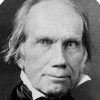In great actions men show themselves as they ought to be, in small actions as they are.
[Dans les grandes choses, les hommes se montrent comme il leur convient de se montrer; dans les petites, ils se montrent comme ils sont.]
Nicolas Chamfort (1741-1794) French writer, epigrammist (b. Nicolas-Sébastien Roch)
Products of Perfected Civilization [Produits de la Civilisation Perfectionée], Part 1 “Maxims and Thoughts [Maximes et Pensées],” ch. 1, ¶ 52 (1795) [tr. Hutchinson (1902), “The Cynic’s Breviary”]
(Source)
(Source (French)). Alternate translations:
In great matters men show themselves as they ought; in little, as they are.
[tr. Mathers (1926)]
In affairs of importance, men show themselves at their best advantage; in small matters they are seen as they are.
[tr. Merwin (1969)]
In great things, men show themselves as they want to be seen; and in little ones they show themselves as they are.
[tr. Siniscalchi (1994)]
In important matters, men display themselves as they want to be seen; in minor matters as they really are.
[tr. Parmée (2003), ¶45]
Quotations about:
moral character
Note not all quotations have been tagged, so Search may find additional quotes on this topic.
Many who would not take the last cookie would take the last lifeboat.
Mignon McLaughlin (1913-1983) American journalist and author
The Neurotic’s Notebook, ch. 3 (1963)
(Source)
The poverty of goods is easily cured; the poverty of the soul is irreparable.
Michel de Montaigne (1533-1592) French essayist
Essays, Book 3, ch. 10 “Of Managing the Will” (1588) [tr. Cotton (1877)]
(Source)
Alt. trans.: "Poverty of possessions may easily be cured, but poverty of soul never."
In self-examination, take no account of yourself by your thoughts and resolutions in the days of religion and solemnity; examine how it is with you in the days of ordinary conversation and in the circumstances of secular employment.
Jeremy Taylor (1613-1667) English cleric and author
(Attributed)
(Source)
Quoted in The Friends' Intelligencer (24 Jun 1882).
We should not be too hasty in bestowing either our praise or censure on mankind, since we shall often find such a mixture of good and evil in the same character, that it may require a very accurate judgment and a very elaborate inquiry to determine on which side the balance turns.
Henry Fielding (1707-1754) English novelist, dramatist, satirist
The Life and Death of Jonathan Wild, the Great, Vol. 5 (1743)
(Source)
The only guide to a man is his conscience, the only shield to his memory is the rectitude and the sincerity of his actions. It is very imprudent to walk through life without this shield, because we are so often mocked by the failure of our hopes and the upsetting of our calculations; but with this shield, however the fates may play, we march always in the ranks of honour.
Anybody who teaches a skill, which coaches do, is admirable. But sport doesn’t build character. Character is built pretty much by the time you’re six or seven. Sports reveals character. Sports heightens your perceptions. Let that be enough.
Heywood Hale Broun (1918-2001) American author, sportswriter, actor
In Ames Daily Tribune (16 Jan 1974)
Broun used a number of variations of this idea. It was more famously paraphrased in James Michener, Sports in America (1976), as "Sports do not build character. They reveal it." More discussion on this quote here.
Europe […] have totally mistaken our character. Accustomed to rise at a feather themselves, and to be always fighting, they will see in our conduct, fairly stated, that acquiescence under wrong, to a certain degree, is wisdom & not pusillanimity, and that peace and happiness are preferable to that false honor which, by eternal wars, keeps their people in eternal labor, want and wretchedness.
Thomas Jefferson (1743-1826) American political philosopher, polymath, statesman, US President (1801-09)
Letter to James Madison (23 Mar 1815)
(Source)
Conscience is thoroughly well-bred and soon leaves off talking to those who do not wish to hear it.
Samuel Butler (1835-1902) English novelist, satirist, scholar
Further Extracts from the Note-Books of Samuel Butler, ch. 4 (1934)
(Source)
Moral cowardice that keeps us from speaking our minds is as dangerous to this country as irresponsible talk. The right way is not always the popular and easy way. Standing for right when it is unpopular is a true test of moral character.
For he that makes any thing his chiefest good, wherein justice or virtue does not bear a part, and sets up profit, not honesty, for the measure of his happiness; as long as he acts in conformity with his own principles, and is not overruled by the mere dictates of reason and humanity, can never do the offices of friendship, justice, or liberality: nor can he ever be a man of courage, who thinks that pain is the greatest evil; or he of temperance, who imagines pleasure to be the sovereign good.
[Nam qui summum bonum sic instituit, ut nihil habeat cum virtute coniunctum, idque suis commodis, non honestate metitur, hic, si sibi ipse consentiat et non interdum naturae bonitate vincatur neque amicitiam colere possit nec iustitiam nec liberalitatem; fortis vero dolorem summum malum iudicans aut temperans voluptatem summum bonum statuens esse certe nullo modo potest.]
Marcus Tullius Cicero (106-43 BC) Roman orator, statesman, philosopher
De Officiis [On Duties; On Moral Duty; The Offices], Book 1, ch. 2 (1.2) / sec. 5 (44 BC) [tr. Cockman (1699)]
(Source)
Attacking the Epicurean "highest good" of avoiding pain and seeking personal detachment; Cicero supported the Stoic virtues of courage and moderation.
(Source (Latin)). Alternate translations:
He who teaches that to be the chief good which hath no connection with virtue, which is measured by personal advantage, and not by honor; if he be consistent with himself, and not sometimes overcome by the benignity of nature, can neither cultivate friendship nor practice justice nor liberality. That man cannot be brave who believes pain the greatest evil; nor temperate, who believes pleasure the supreme good.
[tr. McCartney (1798)]
For if a man should lay down as the chief good, that which has no connexion with virtue, and measure it by his own interests, and not according to its moral merit; if such a man shall act consistently with his own principles, and is not sometimes influenced by the good ness of his heart, he can cultivate neither friendship, justice, nor generosity. In truth, it is impossible for the man to be brave who shall pronounce pain to be the greatest evil, or temperate who shall propose pleasure as the highest good.
[tr. Edmonds (1865)]
For he who so interprets the supreme good as to disjoin it from virtue, and measures it by his own convenience, and not by the standard of right, -- he, I say, if he be consistent with himself, and be not sometimes overcome by natural goodness, can cultivate neither friendship, nor justice, nor generosity; nor can he possibly be brave while he esteems pain as the greatest of evils, or temperate while he regards pleasure as the supreme good.
[tr. Peabody (1883)]
He who severs the highest good from virtue and measures it by interest and not by honour, if he were true to his principles and did not at times yield to his better nature, could not cultivate friendship, justice or liberality; and no one can be brave who declares pain the greatest evil, or temperate who maintains pleasure to be the highest good.
[tr. Gardiner (1899)]
For he who posits the supreme good as having no connection with virtue and measures it not by a moral standard but by his own interests -- if he should be consistent and not rather at times over-ruled by his better nature, he could value neither friendship nor justice nor generosity; and brave he surely cannot possibly be that counts pain the supreme evil, nor temperate he that holds pleasure to be the supreme good.
[tr. Miller (1913)]
Take, for example, the man who has established the kind of highest good that has nothing to do with virtue, that is, measured by the individual's convenience, not by his morality. If that man is consistent and is not in the meantime overcome by natural goodness, he cannot cultivate friendship, or justice, or openness of character. In fact, a man of courage who considers pain the greatest evil, or a temperate man who declares indulgence to be the greatest good, is surely an impossible contradiction.
[tr. Edinger (1974)]
No man can be brave who thinks pain the greatest evil; nor temperate, who considers pleasure the highest good.
[Source]












